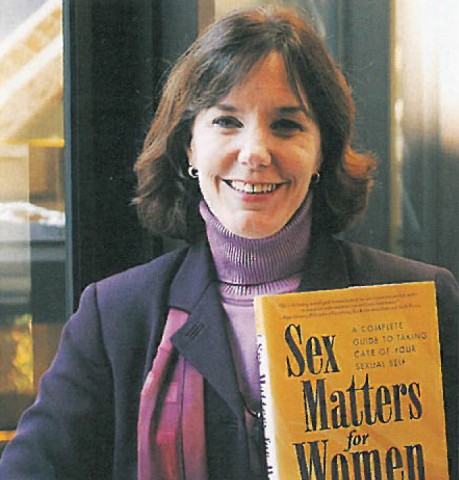
When the birth control pill became available to women in the early 1960s, a new revolution was set to give women more control of their sexuality. And since then, women have continued to make great advances in education and in their professions. But when it comes to their sexuality, most women are still behind the times.
Now, 40 years after that revolution started, sex experts at the University of Michigan Health System want to help women discover what they need to make comparable advances in their sexuality to have a healthy, satisfying sex life.
With the publication of a new book, Sex Matters for Women: A Complete Guide to Taking Care of Your Sexual Self, three U-M sex experts-Sallie Foley, MSW ('78), Sally Kope, hiSW ('83), and Dennis Sugrue, Ph.D.- hope to empower women to make "sex matter" for them in spite of busy schedules and even illness.
"Sex matters, and sex matters for women," says co-author Sallie Foley, a certified sex therapist and adjunct professor in the School of Social Work. "From the moment people are born until they die, they actually have sexual responses and a sexual identity."
Uncovering that sexual identity is the first step to building sexual knowledge and self-confidence. A woman's sexual identity is greatly based upon the events throughout her life: how she was raised, how sexual information was presented to her and what messages she has received from the culture and the media.
Often, these messages create some common sexual roadblocks for women, which may get in the way of mental and physical pleasure, and a relationship.
"Early on, women are taught not to enjoy sex or to be cautious about the problems it can cause like unwanted pregnancy and sexually transmitted diseases;' says Foley. "Because of these messages, it isn't until much later in li fe, if at all, that women discover the positive and fun side to sexuality."
From the moment people are born until they die, they actually have sexual responses and a sexual identity.
While messages of caution are necessary, Foley says it's equally important to follow them up with information about the positive aspects of sex.
A lack of sexual education may also create other obstacles as a woman's body ages or she is faced with illness. But these obstacles can be overcome.
First, Foley recommends that women invest in books and take the time to look at educational websites to build their sexual understanding. These tools can provide insight into what happens to the body during menopause or after having a baby, when either low desire or low arousal can affect sexuality.
Many women also experience changes in their bodies due to a disease or after surgery.
"Sex during a disease or after surgery is an area that only now we're beginning to talk about," says Foley. "The idea is that it's not enough to just survive a disease. Surv ival is about wan ting to lead a normal life, and that life should include sexuality."
But one thing to keep in mind in any of life's situations is that creating a sexually healthy life takes work. Foley encourages women to put the same effort into their sexual selves as they would any good friendship or an exercise program.
Women also need to accept themselves for who they are-both physically and mentally. Being comfortable with your body is an important step in gaining sexual self-confidence. In addition, women should try to avoid measuring themselves against images in magazines.
"Ultimately, it's not what the media does to a woman, it's not what magazines do to a woman, it's what we do to ourselves," Foley says. "If we start changing our viewpoint about how we see other people in their aging or their body, we'll change our own self-perceptions."
And if women need advice or are experiencing any type of sexual difficulty, Foley strongly recommends that they make an appointment with their health care provider or ask questions during a routine examination.
For more information about the book, "Sex Matters For Women: A Complete Guide to Taking Care of Your Sexual Self," visit www.guilford.com.
-Krista Hopson is a writer in the Department of Public Relations & Marketing Communications at the University of Michigan Health System.